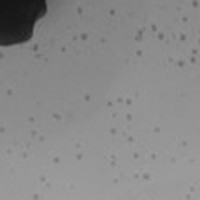Gordonia phage Thyra
Add or modify phage thumbnail images to appear at the top of this page.
Know something about this phage that we don't? Modify its data.
| Detailed Information for Phage Thyra | |
| Discovery Information | |
| Isolation Host | Gordonia terrae 3612 |
| Found By | Haley Marco |
| Year Found | 2017 |
| Location Found | Grand Rapids, MI USA |
| Finding Institution | Calvin University |
| Program | Science Education Alliance-Phage Hunters Advancing Genomics and Evolutionary Science |
| From enriched soil sample? | Unknown |
| Isolation Temperature | Not entered |
| GPS Coordinates | 42.929426 N, 85.589186 W Map |
| Discovery Notes | Thyra was found in the flag pole flower bed in front of the Spoelhof Center of Calvin College. When driving in to Calvin's campus by the main entrance the Spoelhof Center is the initial building/visitor center students and families see. I dug about an inch into the soil of the flower bed and collected my sample there. It was under rich flower foliage. I collected my sample on September 17th, 2017. |
| Naming Notes | Thyra is a feminine name from the Scandinavian root meaning/honoring an ancient god of war. I am part Swedish so I was looking for a name from said lineage. I found this name through a name generator but it immediately stuck because it represents the continued "war" phage have between their own survival and the environment around them, also the "war" phage undergo in bacteria itself and infecting it. |
| Sequencing Information | |
| Sequencing Complete? | No |
| Genome length (bp) | Unknown |
| Character of genome ends | Unknown |
| Fasta file available? | No |
| Characterization | |
| Cluster | Unclustered |
| Subcluster | -- |
| Annotating Institution | Unknown or unassigned |
| Annotation Status | Not sequenced |
| Plaque Notes | My plaques are fairly small but with very clear and defined edges, I am under the impression it is a lytic phage. I have not been able to get very high concentrations of the phage in titer. My medium volume titer is 2.4 x 10^8 pfu/mL, I was able to recently get a higher titer of 2.9 x 10^8 (on 11/29/17) which is what I have archived however. When I diluted my phage only by half (10^-0.5), the plaques displayed more hazy temperate-like characteristics. This is most likely due to a higher concentration of phage and so they were able to stay temperate rather than lytic, but for the most part Thyra produces very clear plaques. I am very confident I have isolated a single/pure phage, the plaques all are very similar and so far nothing has indicated additional phages in my sample or on my plates. |
| Has been Phamerated? | No |
| Publication Info | |
| Uploaded to GenBank? | No |
| GenBank Accession | None yet |
| Refseq Number | None yet |
| Archiving Info | |
| Archiving status | Archived |
| Pitt Freezer Box# | 74 |
| Pitt Freezer Box Grid# | C1 |
| Available Files | |
| Plaque Picture | Download |
